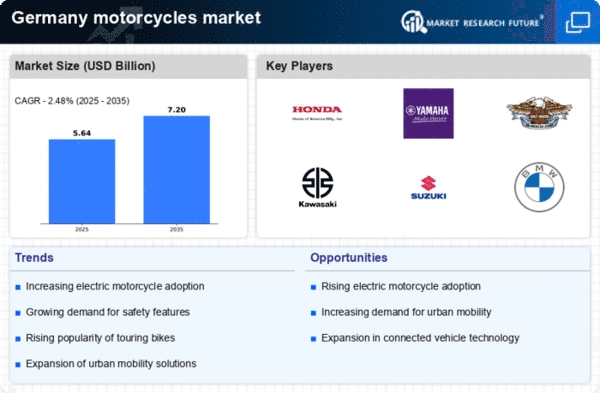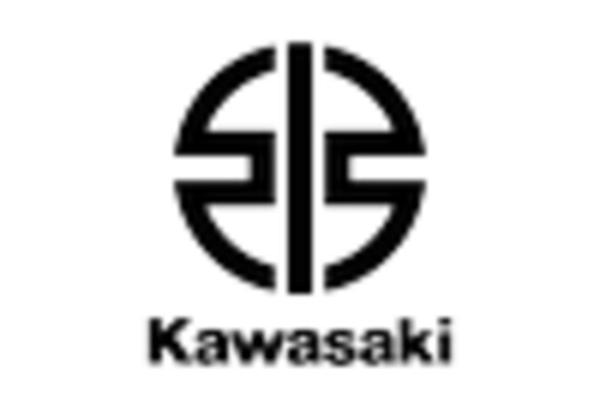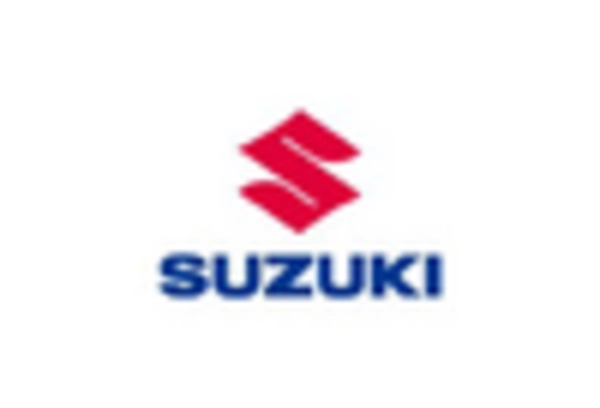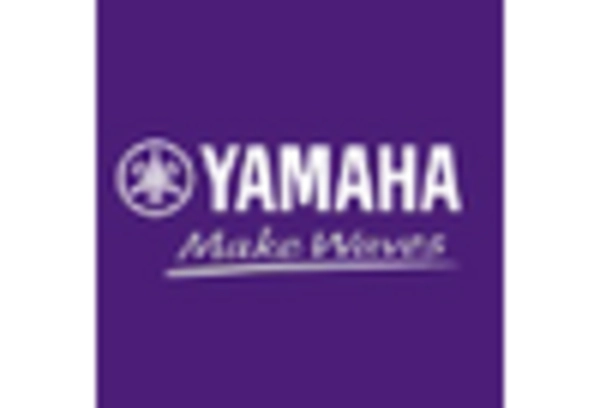Rising Fuel Prices
The increasing cost of fuel in Germany has a profound impact on the motorcycles market. As fuel prices rise, consumers are likely to seek more fuel-efficient transportation options. Motorcycles, known for their superior fuel economy compared to cars, become an attractive alternative. In 2025, the average price of fuel in Germany is projected to reach approximately €1.80 per liter, prompting a shift in consumer preferences. This trend indicates a potential growth in the motorcycles market as individuals look to reduce their commuting costs. Furthermore, the demand for motorcycles is likely to increase as they offer a cost-effective solution for urban commuting, thereby driving sales and expanding the market share of motorcycle manufacturers.
Cultural Shift Towards Motorcycling
In Germany, there appears to be a cultural shift towards embracing motorcycling as a lifestyle choice rather than merely a mode of transportation. This trend is characterized by an increasing number of motorcycle clubs, events, and community gatherings that celebrate the motorcycle culture. As of 2025, it is estimated that participation in motorcycle-related activities has grown by 25%, fostering a sense of community among enthusiasts. This cultural phenomenon is likely to drive interest in the motorcycles market, as more individuals are inspired to purchase motorcycles for leisure and social engagement. The emotional connection to motorcycling may lead to increased sales, particularly in the cruiser and touring segments, as consumers seek to align their purchases with their lifestyle aspirations.
Urbanization and Traffic Congestion
The rapid urbanization in Germany is contributing to increased traffic congestion, which in turn is influencing the motorcycles market. As cities become more densely populated, the need for efficient and agile transportation solutions becomes critical. Motorcycles offer a practical means of navigating through congested urban environments, making them an appealing choice for commuters. In 2025, it is projected that urban areas will see a 15% increase in motorcycle registrations as individuals seek to avoid the frustrations of traffic jams. This trend suggests that the motorcycles market will benefit from the growing demand for two-wheelers as a solution to urban mobility challenges, potentially leading to a significant uptick in sales.
Government Incentives for Two-Wheelers
In Germany, government initiatives aimed at promoting sustainable transportation are likely to bolster the motorcycles market. Incentives such as tax reductions, subsidies for electric motorcycles, and reduced registration fees encourage consumers to consider two-wheelers as viable alternatives to traditional vehicles. The German government has set ambitious targets for reducing carbon emissions, which may lead to an increase in funding for electric motorcycle programs. As of 2025, it is estimated that around 20% of new motorcycle sales could be attributed to government incentives, significantly impacting the market dynamics. This supportive regulatory environment is expected to stimulate growth in the motorcycles market, particularly in the electric segment.
Technological Advancements in Motorcycles
The motorcycles market in Germany is experiencing a wave of technological innovations that enhance safety, performance, and user experience. Features such as advanced braking systems, connectivity options, and improved fuel efficiency are becoming standard in new models. In 2025, it is anticipated that approximately 30% of motorcycles sold will incorporate smart technology, appealing to tech-savvy consumers. These advancements not only improve the riding experience but also address safety concerns, which are paramount for potential buyers. As manufacturers invest in research and development, the motorcycles market is likely to see a surge in demand for high-tech models, thereby reshaping consumer preferences and driving market growth.
















